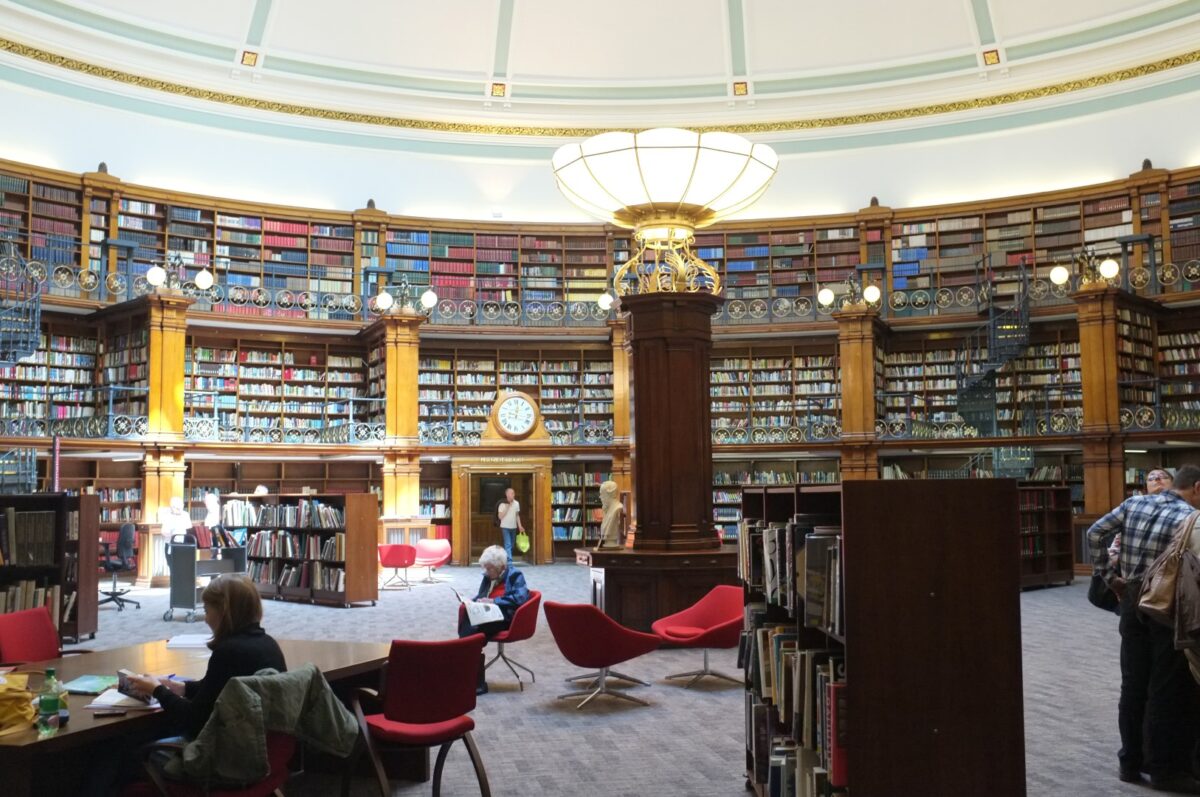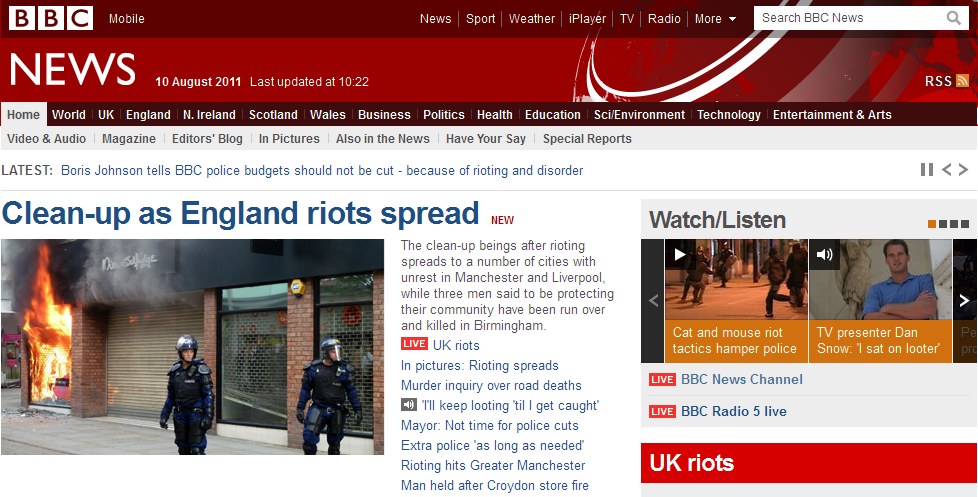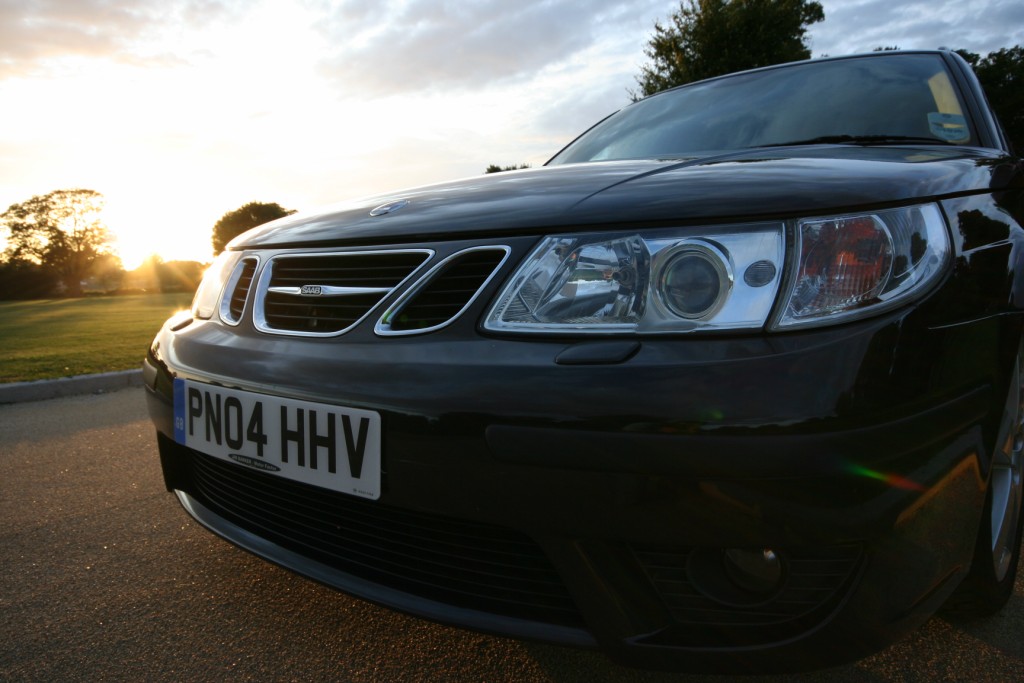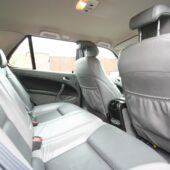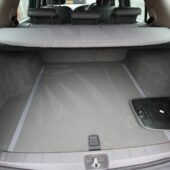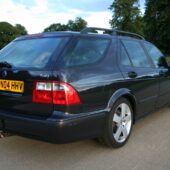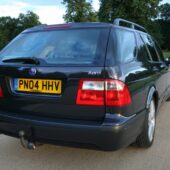It’s hard to explain the odd calm that came over me as I sat there, waiting for the biggest operation of my life. I didn’t feel happy. I didn’t feel miserable. It wasn’t as if I’d been feeling terrible. I’d just had one bad morning two and a half weeks earlier where I felt rough, then more rough, then really really rough, then fine again.
It’s weird. You see heart attacks on TV and you get this idea of a mad bad event where you keel over, clutching your heart in agony. But it doesn’t really work like that. The night before I’d felt tired. In fact, for a few years I’d been feeling like hard exercise was a challenge. It took me an age to warm up for a sport, and then I’d be fine. But the first half hour was a chore. And if I’d eaten I was basically useless for an hour or so.
I put it down to age and asthma.
I wish I hadn’t. But thankfully, I got lucky, in a way.
So driving along to work I felt this tightness in my chest, a tiredness, and a general malaise. So I decided, as was sensible, to pick up some vitamin tablets on the way to work. That’s what you do when you’re tired. Take vitamins, and get plenty of sleep. That was my plan. But by the time I got to the counter, I felt even worse and decided to mention the chest tightness to the chemist. She very clearly said I should go to the walk-in centre and get checked out. Instead, of course, I decided I’d get it checked out at some more convenient moment. But by the time I got back to the car I realised I was very out of breath just walking slowly.
I was having a heart attack. I didn’t know it yet. I looked at my Fitbit on my wrist and it said my heart was doing a nice old 70 bpm. Normal enough for me. So why was I puffed out? Must be an asthma thing. But I decided that I would go to the walk-in centre after all. I drove, feeling increasingly out of sorts, parked quite badly, and shuffled in to reception.
A few hours later, I was hugging my wife in A&E at the Royal Liverpool Hospital. I was worried, but not terrified. The doctor dealing with me said “I’m concerned but not worried.” That was a relief. The diagnosis was swinging between heart attack and pericarditis. I was atypical. Relatively young, slim, non-smoker, evidently in reasonable health, and moderately active for someone desk-bound at work.
But they couldn’t satisfy themselves. The A&E cardiologist said I had to go in for observation. They observed me.
Observation is boring
I was sent up to a cardiac observation ward where there were a range of folk from really quite ill and very elderly to me. By then I was feeling fine, quite chirpy, and generally comfortable. My biggest complaint was that the ward was a bit noisy, with an elderly chap who was rather confused causing the most noise. But hey, I was alive, the food was tolerable, I had my Kindle and my phone. I started to obsessively read about the heart, interpreting ECGs and so on. It’s all quite fascinating. And complex. I won’t pretend a lot of it stuck. But now I knew the possibilities.
The rather wonderful Mr Fisher, my cardiologist at the hospital there, did a series of echocardiograms. He felt that I was 95% likely to have pericarditis, in which case a few tablets and I’d be right as rain within a couple of weeks. However, there was a 5% chance of something else, so he’d scheduled me for an angiogram at the Liverpool Heart and Chest Hospital. If they found something, they would be able to stent me there and then and I’d be on the path to recovery.
95% chance of some tablets and everything was fine? OK, I cried a little and started looking forward to the family holiday we had planned.
Angiograms feel weird
An angiogram is where a fine catheter is inserted up to the heart, then a substance that can be detected using x-rays is released into the heart. This allows the surgeon to get a visualisation of the heart. It’s really interesting. And a little unpleasant, but definitely not much more unpleasant than a longer dental visit. It is surgery of a sort, and done carelessly it can do damage, so they always have someone on standby ready to whiz your chest open and do some emergency surgery.
Thankfully it’s usually very safe. It just feels odd, sitting there with this big machine whizzing around you imaging your heart, a massive TV screen to your left, and a very precise talking and unambiguous surgeon on your right instructing his team. I was anxious. He noticed that, and he said “just give him the valium. Now”. At least I think it was valium. In some ways my memory is a bit fuzzy.
Because then, as he finished everything up, he explained that a stent wouldn’t be possible and I would need what is called a coronary artery bypass graft. Four, maybe five. I… didn’t like that news. I felt shocked, scared, and unhappy. I’d gone from probably just an annoying health scare to looking towards having my chest sliced open and my heart operated on.
How do you even operate on a heart? It’s not supposed to stop. Right? Stopped heart = dead. No?
The wait
So then you just wait. And wait. They wouldn’t let me leave the hospital. I was at risk of another heart attack, the blockage was so bad, and they needed my system to flush out the drugs I’d been given when I was suspected of a heart attack. Risks, apparently. It took two and a half weeks from admission to operation. Long enough to think about my mortality, prepare some things, and do weird things like have a company meeting in the middle of the ward to ensure everyone knew what to do, and how.
It was an interesting time. People came and went. I got to know some, and would chat to them as they faced their fears. Most people were older, most were as surprised as I was. What really surprised me is that the image most of us have of people waiting for a bypass wasn’t really fulfilled. Sure, you had the smokers and the fatties. But loads of us were relatively active, relatively slim people. Not that athletic, mostly, but in a line-up of people most likely to need a bypass, you wouldn’t have picked most of us.
Sometimes I’d chat with people facing the operation the next morning and they were, usually, very anxious and worried. Some said things like “well, if I die… I won’t know it. It’s my family I worry for.” Others joked about having their last cup of tea. There’s some morbid humour, but it felt like a release too. A way of expressing anxiety with a laugh.
But the fact so many of us weren’t people who’d neglected ourselves felt terribly unfair. I struggled to deal with that.
Could’ves and should’ves
One chap, about ninety years old and looking in remarkable health, was in for a new valve. He said without it he’d likely not survive the year. With it he had a good chance of another five years. Yes, there was a risk, but as he said “I’ve had a good life.” I guess by the time you reach your nineties you come to a realisation that you can’t really have that long left, no matter what you do.
I talked about my own misgivings. I’d been a bit plump in my twenties, and I enjoyed partying and chocolates. I’d also been a hard working type with little time to do lots of exercise. He smiled and said something like “Life’s full of could’ves and should’ves, but they really don’t matter. You have to deal with the present and make things as best you can for the future. The past has gone. Leave it be.”
He was so right.
Getting closer
As the date loomed I thought I’d get increasingly anxious, but it just stopped. I wasn’t aware of being pumped with chill-pills. I’d seen more frail people go off to operation, and I’d chatted with them as they recovered. It was clearly hard going for them, but they lived and they seemed in good spirits. It’s a very hard operation to go through, I knew that, but now it felt tangible. I also had visits from colleagues, friends and family, so each day I had something to look forward to.
I did do some morbid things. I wrote a note to my family, should I die. I have no skeletons in the closet, but wanted to ensure they knew where to find financial stuff. I knew that they knew that I loved them. I kept the schmaltzy stuff to a minimum. Just crack on. What needs to happen has to happen.
The day itself
Now, this is where it gets more interesting, really. First thing you have to do is shave off all body hair below the neck. You’re handed a quality hair trimmer, with a sterile trimming blade, and pointed to the bathroom. Bzzzzzz! It takes for ever! And those things bite! Once on the balls. I wasn’t really sure where to stop, and I couldn’t really do my back on my own, so I left that, assuming they knew that too.
My operation, schedule for the afternoon, meant no food or drink. I read a bit, chatted with Romana, and refused to say goodbye. I was coming back. I knew it. I was confident. I’d already met the surgeon, and he seemed confident, precise, and concise. I like that in a person. We talked a little about technicalities and how the procedure would be done one me, what arteries they were harvesting and from where. I’d also spoken to another surgeon who I assumed assisted. He poked me and checked how various bits of me worked. I had a breath test. I had a lot of tests. But the day of the operation itself was quiet, really.
So I knew the operation was going to be a beating heart one, without using a heart-lung bypass machine. The attachment of the grafts would be done using some weird sucker machine (maybe called an Octopus) that would stabilise my slowed down heart, but at no point would it be stopped. Amazing. Each stitch carried out between the beats of my heart on arteries just 1.5mm wide.
And then it comes. The porters arrive, you give everyone else on the ward a wave, they say good luck, and you go. All the stuff you have is bagged up and taken away. You don’t need it the next day, and if there are emergencies stuff can get lost, so it’s better if a friend or partner handles it.
Then you wait in a pre-operation room with clouds painted on the ceiling. It made me think of going to heaven, but it was better than white tiles, I guess. That was when I chatted with Romana, ensured she knew I loved her, again, and waited. And then they come for you. You say goodbye, and off you go to theatre.
There, the anaesthetist I’d met before, hooked me up to a skullcap for monitoring my brain, and started preparing me with those injection thingies. A theatre nurse chatted and joked with me. Clearly there to keep my mind off things and keep me calm. And the moment comes. The anaesthetic is injected and you’re switched off.
It really is like that. You don’t have any awareness.
I’m awake and alive!
Actually, I remember a vague moment of having something pulled out of my throat, being conscious, and then out of it again. According to Romana when I first woke I became agitated, so they sedated me again for a while. When I next woke I had a nurse talking to me, giving a button to press with instructions about how it delivered morphine and would ease my pain. I couldn’t overdose with it apparently.
I tried.
I clicked that button again and again! Not to deliberately kill myself or anything, but because it was so nice! However, it’s rate limited. Keep pressing and it just beeps. When it kicks in you feel this warmth, and the pain goes. It’s a very nice drug and I’m not surprised people get addicted.
Romana came in. I was… not really in the best place. I was in pain. I felt like I’d been hit by a truck. I don’t even know if I have the order of events right.
Click. Oh, that lovely morphine button.
We chatted a little, but I remember very little. I had an oxygen mask, I was uncomfortable. I realised I had a urinary catheter in place, so I could stay still. She left, and I think I slept.
Intensive care is weird
One thing I never realised from films, is that intensive care really is just that. It’s actually, in this case, Post-Operative Critical Care. A nurse is stationed at the end of your bed and watches you constantly in the first night. At one point I remember being woken.
“David… can you breathe please?”
I took a gasp.
“You’re worrying me with your apnea,” she said.
I took a few breaths. I felt as OK as I could manage.
I could only see one other person on the ward, and he would wave at me and give me thumbs up. He couldn’t take his mask off. We waved and smiled at each other. I never saw him on the cardiac recovery ward, but he could have had different conditions – they do other kinds of surgery there beyond hearts.
The next day was a bit less painful. You get x-rayed in your bed, poked, prodded and checked. My blood pressure tended towards the low side, but you could see that at the 24hr point I was getting a lot less attention, all the pipes in my chest were out, stitches put in, and I was being made to sit for a while now and again. The second night I was definitely left to my own devices for a bit.
After a few checks the next morning, it was off to recovery.

The poo of doom
Each day you feel better. You need less and less supplemental oxygen. You start eating normally again.
I’d also heard that after a major operation, you get constipation. Had I known this I’d have been tempted to stop eating two days beforehand!
Because after a few days, you realise you have to poo. Thankfully this comes once you’re mobile again. But even walking fifteen metres to the bathroom is still tiring on the third day. The poo won’t wait. Nor should it. Because the longer it takes, the worse it’ll be.
Man, you’re giving birth.
Seriously. I sat in the bathroom. It started to come. Very very slowly. It. Was. Huge.
And a huge poo is going to be unpleasant, no matter how much time you give it. I feel for heroin addicts dealing with that. Their piles must be quite something.
I strained, but only a little as I’d been warned not to. So I had to tolerate this thing… half in, half out. Slowly but surely, little by little, it came. But it seemed to never end. I swear, I spent an hour in that bathroom, swearing, cursing, and wishing I’d never been born. And if I pushed too hard my heart rewarded me with a palpitation or to and I’d feel breathless.
The thought occurred to me… what if I died right now? A poo, half the way out of my arse and me, on the floor? That would be the last thing the world saw of me. Ew.
Deep breath.
Carry on. Wait. Be patient.
Eventually, it was over. I hobbled back to the bed, grabbed my oxygen mask, and had a nap. I’d deserved it.
Eventually you get to go home
Six days after being open and lying surrounded by dedicated specialists, I was going home. They test you to see if you’re capable of being trusted. You have to walk a certain distance, unaided, and climbing and descend a flight of stairs. A group of you go together for this test. We all did it. There was some sort of air of celebration around us. We were survivors! This thing wasn’t going to defeat us after all! Each day we were stronger!
The homecoming
Getting to leave the hospital is a joy. I’d been taking walks and stepping outside anyway. I was very keen to be moving. I felt frail and slow, but it allowed me to feel like life was going to improve.
But in spite of that, on discharge, you’re given your bag of drugs and wheeled to the door. Once you’re off in your car, you’re no longer their problem. Until then though, they have a process to follow and they’ll stick to it!
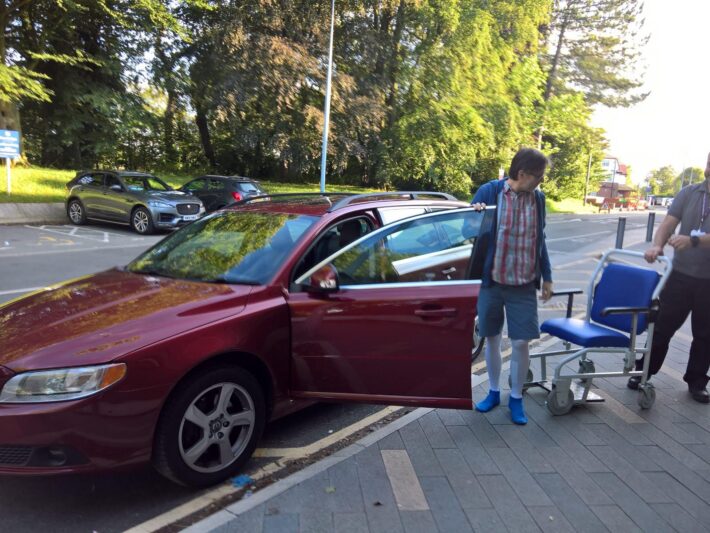
As you can see, I had the weird hospital socklets and stockings on. The compression stockings help reduce the chance of a blood clot forming in your legs, and reduce swelling. You can see from this photo that my left leg, from which a vein had been harvested, was definitely bigger than my right
And that’s it. The next phase is about getting back to full fitness, work and leading a full life. I surprised myself, and I’ll share more soon. I’m planning to discuss stress, work-life balance, family and a few more things. And this blog may even come back to life a little bit. I’m bored of helping Facebook and friends to keep their platforms populated with content that is then lost in a silo. Longer writing definitely has a place. Please feel free to join me here.

